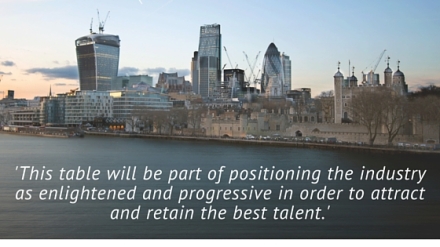THC’s view on The Great British Diversity Experiment
Emily Philp, Head of Marketing and Operations, The Hobbs Consultancy
I attended The Great British Diversity Experiment Report Launch on Wednesday 25th May at BBH London with over 250 fellow advertising folk. As you walked into the room, you could feel the nervous energy bubbling below the surface, what findings were in store for us… For those who don’t know what The Great British Diversity Experiment is, it’s the first diversity initiative conceived for, designed and launched by the communications industry. Over 20 teams of truly diverse individuals took part in an experiment, answering a brief from Tesco to attempt to solve problems of food wastage. The winning team received an all-expenses-paid trip to SXSW Interactive in Austin, Texas, and a weeklong placement at BBH London. Meanwhile the findings of the diversity experiment were collated into a report, which were presented on the evening of the report launch along with talks from industry leaders on the very specific and practical insights the experiment uncovered and a review by the winning team on their individual poignant experiences, challenges and self discoveries.
One particularly interesting, but not surprising insight for me was that the teams that performed the best in the experiment were those where the individuals could be themselves. Furthermore, it is emphasised in the report that diversity works for the creative industries because working with a diverse group of people allows individuals to show up as their authentic selves, which means you can contribute more creatively and effectively in your job.
As mentioned this isn’t a surprising insight for me as one of the main focuses of our energies and offering at The Hobbs Consultancy is to enable people to show up as their true selves in both personal and professional life.
The Hobbs Consultancy’s mission is to bring a more inclusive culture to the workplace and coaching is a core part of what we believe can deliver that mission. It is through coaching that individuals can work out who their authentic self is, understanding what makes them tick, what holds them back and what enables them to be the very best version of themselves when they enter the workplace.
Of the 5 practical actions that the report sets out for businesses to do now, the one that resonates the most for me, is ‘retrain your leaders’. It’s vital that leaders of organisations take action. Without the buy-in and demonstration that company bosses will put their money where their mouth is, without inclusive leadership, we wont have the power to transform the industry, making it one that thrives with creativity, connection and innovation, that attracts and retains the best talent and ultimately delivers game changing work for clients. Here at The Hobbs Consultancy, we offer executive coaching and Leadership Programmes, which focus on leaders doing their own internal work, recognising and then accepting responsibility for our circumstances and taking action to create a more inclusive culture.
The GBDE report also calls out that there is a huge need for more diversity training in the industry – in order to change the creative process and leadership styles. We agree and believe passionately that Diversity and Inclusivity training is key to helping companies create a more creative and innovative working environment, which is why one of our main product offerings is a Diversity 3.0 workshop which gets participants behind the business case for D&I, looks at what their unconscious biases might be and finally moves into action.
Alongside D&I training and Leadership Programmes, we offer Mentoring training, Conflict Resolution workshops and a D&I audit – this product offering has been designed to help businesses provide a more diverse and inclusive workplace.
My biggest take out of the report launch was that there is hope; to quote the founders “if every leader across the communications industry implemented the recommendations of the report, we would build a better communications industry” – I believe collectively, we are on the way to making this happen.
To read the full findings of the Great British Diversity Experiment, click here.
For more information on The Hobbs Consultancy’s products and services, email Emily@thehobbsconsultancy.com



